The world’s smallest penguin has made one of Australia’s largest cities its home.

IT’S A NIGHT LIKE any other in the bayside suburb of St Kilda. A frosty wind is blowing and the lights of the city dance on the water, tinted pink and purple by the retiring sun. As grand as this scene is, it’s not what’s drawn me to the rocky breakwater at the end of St Kilda Pier. I’ve come for something far more captivating, although largely unexpected, just a long stone’s throw from the centre of Australia’s second-largest city, Melbourne.
In the fast-fading light, and just past the pier kiosk, I hear a quiet crunch – the shuffle of light feet on gravel. Then I see it – a little character, no taller than a school-kid’s ruler, waddling out from between two large rocks on the beach side of the wall. It’s in no rush, which is a true treat for me and the other keen observers who’ve come to witness the night-time ritual of St Kilda’s charming little penguins.
“What’s that?” I hear you ask. “Penguins?” That’s right. There’s a 1400-strong huddle of the birds right under the noses of 5 million Melburnians, just 5km from the city centre. How did they come to settle in bustling Port Phillip Bay?
For the answer we need to dive back in time to 1956, when the 750m-long rock wall I’m now standing on was built to form a harbour for sailing events during the Melbourne Olympic Games. After the athletes moved on the penguins moved in. And while no-one’s exactly sure when this happened, locals recorded two breeding pairs in 1974. Before then there was only the occasional penguin seen in the bay and under the old St Kilda Pier, but these were thought to be wanderers from the 32,000-member Phillip Island colony, a 110km swim to the south-east. Fast-forward 12 years to 1986, when a proposal to redevelop St Kilda Harbour prompted Monash University seabird expert Professor Mike Cullen to visit the breakwater.
This story is from the November - December 2018 edition of Australian Geographic Magazine.
Start your 7-day Magzter GOLD free trial to access thousands of curated premium stories, and 9,000+ magazines and newspapers.
Already a subscriber ? Sign In
This story is from the November - December 2018 edition of Australian Geographic Magazine.
Start your 7-day Magzter GOLD free trial to access thousands of curated premium stories, and 9,000+ magazines and newspapers.
Already a subscriber? Sign In
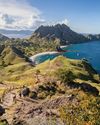
SULAWESI SENSATIONS
There are worlds within worlds and marvels untold waiting to be experienced on Indonesia's remote islands.
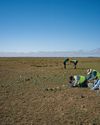
SEARCHING FOR AUSSIE DINOSAURS
Our understanding of where to find ancient life in Australia has been turned on its head by a new appreciation of the country's geology. Now the world is looking to our vast outback as the latest hotspot to locate fossils.
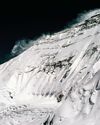
THE HARDEST NIGHT
The first Australian ascent of Mt Everest in 1984 is one of the great feats of mountaineering. Climbed by a small team semi-alpine style, with no bottled oxygen, via the Great (Norton) Couloir, it remains unrepeated 40 years later.
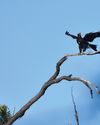
WEDGE-TAILED WONDER
The chance discovery of an eagle nest leads to an extended vigil observing normally hidden behaviours of one of nature's supreme winged marvels.
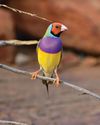
BURDENED BY BEAUTY
Northern Australia's Gouldian finch survives in huge numbers in cages around the world, but its wild population continues to struggle.
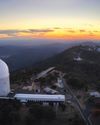
A TELESCOPE FOR A GOLDEN AGE
After a stellar 50 years as one of the country's major scientific assets, the AAT continues to play a major role in keeping Australian astronomy on the world stage.
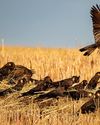
COCKY WHISPERING AT COOMALLO CREEK
This patch of remnant bush on the edge of the West Australian wheatbelt is a place loved by one of Australia's rarest bird species and the man who has studied the site for more than 50 years.

A PIONEERING PAIR
Louisa Atkinson and her mother, Charlotte, were among Australia's earliest authors, and pioneers in women's rights.
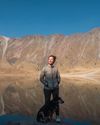
THE LONGEST WALK
Lucy Barnard is walking from Argentina to Alaska -the length of the Americas - on an extraordinary journey of endurance and adventure.
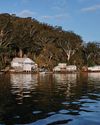
SECLUDED, BUT NOT ALONE
In an era of heightened social isolation, where many of us lead lonely lives, Dangar Island offers the chance to be part of a supportive, connected community.